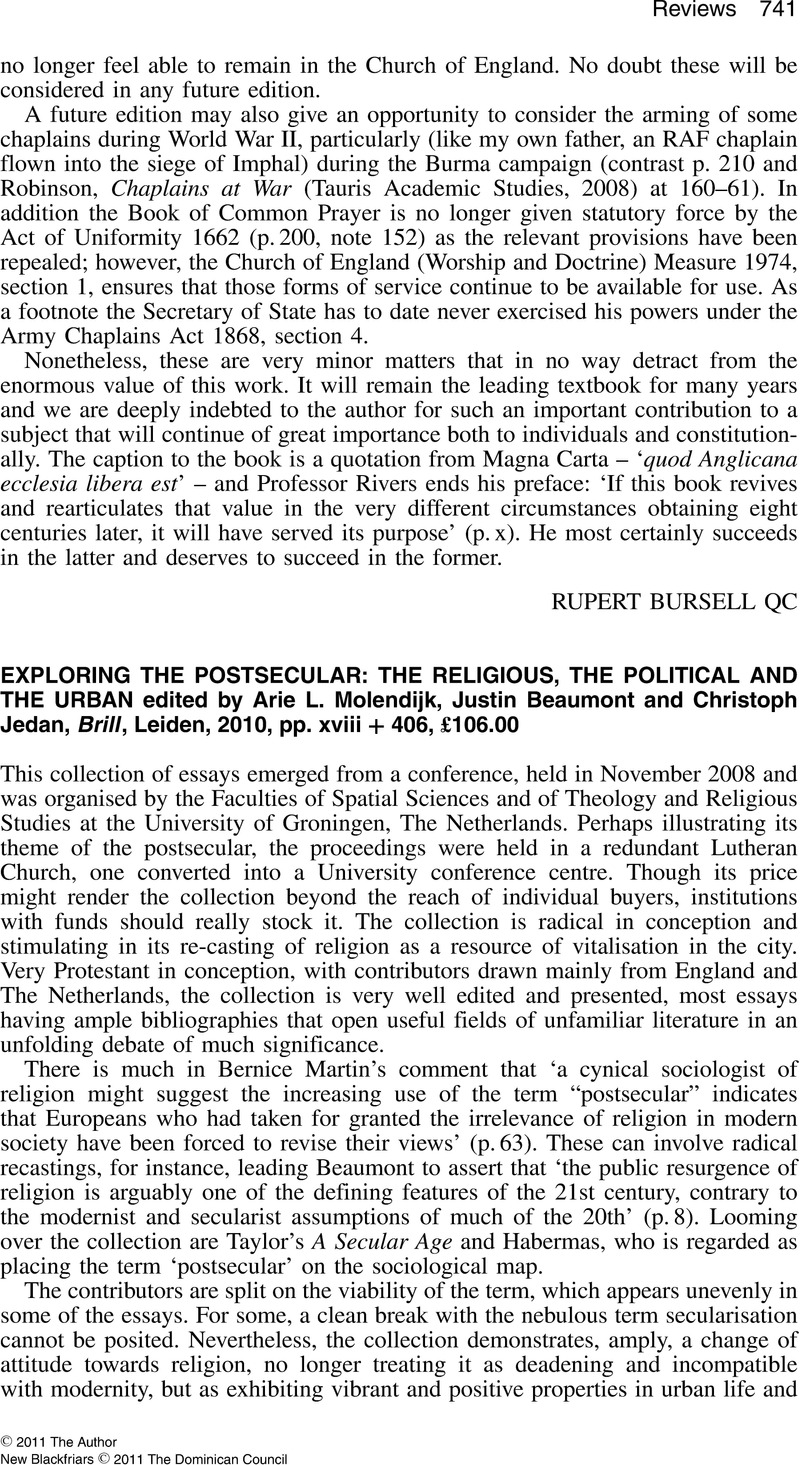No CrossRef data available.
Article contents
Exploring the Postsecular: The Religious, The Political and the Urban edited by Arie L. Molendijk, Justin Beaumont and Christoph Jedan, Brill, Leiden, 2010, pp. xviii + 406, £106.00
Review products
Exploring the Postsecular: The Religious, The Political and the Urban edited by Arie L. Molendijk, Justin Beaumont and Christoph Jedan, Brill, Leiden, 2010, pp. xviii + 406, £106.00
Published online by Cambridge University Press: 01 January 2024
Abstract
An abstract is not available for this content so a preview has been provided. Please use the Get access link above for information on how to access this content.

- Type
- Reviews
- Information
- Copyright
- Copyright © 2011 The Author. New Blackfriars


